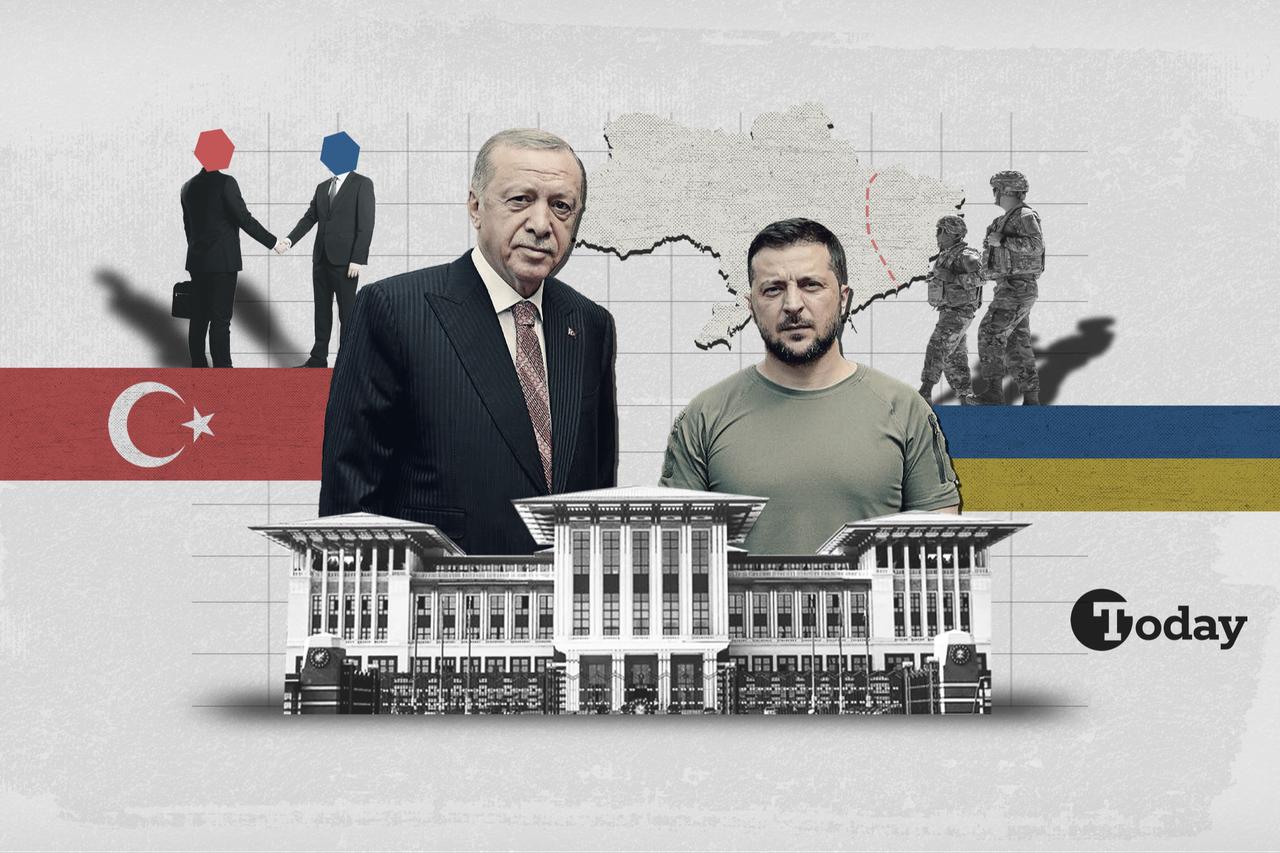
A high-profile meeting on the Ukraine war convened in Washington this week, bringing together former U.S. President Donald Trump, Ukrainian President Volodymyr Zelenskyy, NATO Secretary-General Mark Rutte, European Commission President Ursula von der Leyen, French President Emmanuel Macron, U.K. Prime Minister Keir Starmer, Finnish President Alexander Stubb, Italian Prime Minister Giorgia Meloni and German Chancellor Friedrich Merz.
But Türkiye was not among the invited. French President Emmanuel Macron stated that the peace talks planned for Russia-Ukraine were not inclusive enough. Macron said, "Europeans and Turks should also have been at the table."
The exclusion drew sharp criticism from Ilhan Uzgel, the opposition Republican People’s Party’s (CHP) foreign policy coordinator, who accused the government of reducing Ankara’s international standing.
“They will take decisions at these tables and later treat Türkiye as Europe’s policeman,” Uzgel wrote on social media.
European capitals framed the meeting as a demonstration of unity, insisting that Ukraine should not appear isolated. Yet despite its pivotal role in the early stages of the war, Ankara was not willing to sit with its European counterparts, as it appeals more to the solutions cemented by the U.S.

At the start of the conflict, Türkiye’s ability to maintain dialogue with both Kyiv and Moscow was a unique asset. Ankara enforced the Montreux Convention, balancing naval access in the Black Sea, and it supplied drones that became symbols of Ukrainian resistance. Most importantly, Türkiye brokered the Black Sea grain deal, the only major diplomatic breakthrough during the war’s first years.
But that balancing act has eroded. As Washington re-engaged directly with Moscow on military escalation and European leaders consolidated their positions, Türkiye’s once singular advantage lost much of its relevance. What was previously an asset, open channels to Russia, no longer guarantees Ankara a place at the core of negotiations.
Ankara's absence from the Washington summit epitomizes a calculated recalibration toward U.S.-centric diplomatic architectures, deliberately eschewing European proposals.
Turkish officials harbor profound reservations about European involvement in peace processes, viewing the intervention of European capitals in the 2022 Istanbul negotiations as instrumental in precipitating their ultimate collapse. This institutional memory has crystallized into a strategic preference for bilateral engagement with Washington rather than navigating the complexities of European consensus-building.
This positioning does not preclude future collaboration with European allies; rather, it reflects Ankara's determination to engage only after substantive frameworks have been established through primary stakeholder negotiations.
Once concrete parameters are delineated, Türkiye remains amenable to multilateral consultations with its European counterparts to operationalize implementation mechanisms.
Türkiye's direct communication channels with Moscow once represented a unique diplomatic asset that Western allies lacked. However, this advantage has been systematically eroded as the United States established its own direct engagement mechanisms with Russia.
This evolution exemplifies the reconfiguration of international diplomatic hierarchies, wherein established regional powers find themselves compelled to adapt to direct superpower dialogue.
Ankara confronts the delicate imperative of preserving diplomatic utility while safeguarding the multifaceted partnerships that initially conferred its mediatory legitimacy.

Despite its diplomatic displacement, Türkiye is far from entirely irrelevant to the Ukraine conflict resolution. Its strategic position in the Black Sea and implementation of the Montreux Convention remain critical for both NATO and Russian maritime access. The country's defense industry partnership with Ukraine—particularly the deployment of Bayraktar TB2 drones—has established Ankara as a significant battlefield stakeholder.
Moreover, Türkiye's maintenance of energy and trade relationships with Moscow provides potential leverage for post-conflict facilitation. These multidimensional connections position Ankara uniquely among NATO allies, offering both constraints and opportunities as diplomatic processes evolve.
The 2022 Istanbul Agreement represented the closest the conflict came to a negotiated pause, with Türkiye serving as the primary facilitator between Ukrainian and Russian delegations. That diplomatic momentum, however, dissipated amid shifting battlefield dynamics and evolving great power calculations.
In January, Foreign Minister Hakan Fidan acknowledged that many renewed peace proposals trace their origins to the Istanbul framework, yet the initiative has decisively shifted to the US-Russia-EU triangle.
The most realistic pathway for Türkiye's return to diplomatic centrality lies not in active negotiation but in serving as a neutral venue for future gatherings.
Some observers suggest that, should current U.S.-led initiatives end in a stalemate, participating parties might once again turn to Türkiye as a trusted third-party host whose geographic and political positioning offers practical advantages for sensitive peace discussions.
The transformation reflects broader shifts in global diplomatic architecture, where traditional middle powers must increasingly adapt to great power competition that often renders their mediating capabilities secondary to direct bilateral engagement.
For Türkiye, the challenge lies in maintaining relevance without compromising the strategic relationships that originally made its mediation valuable.